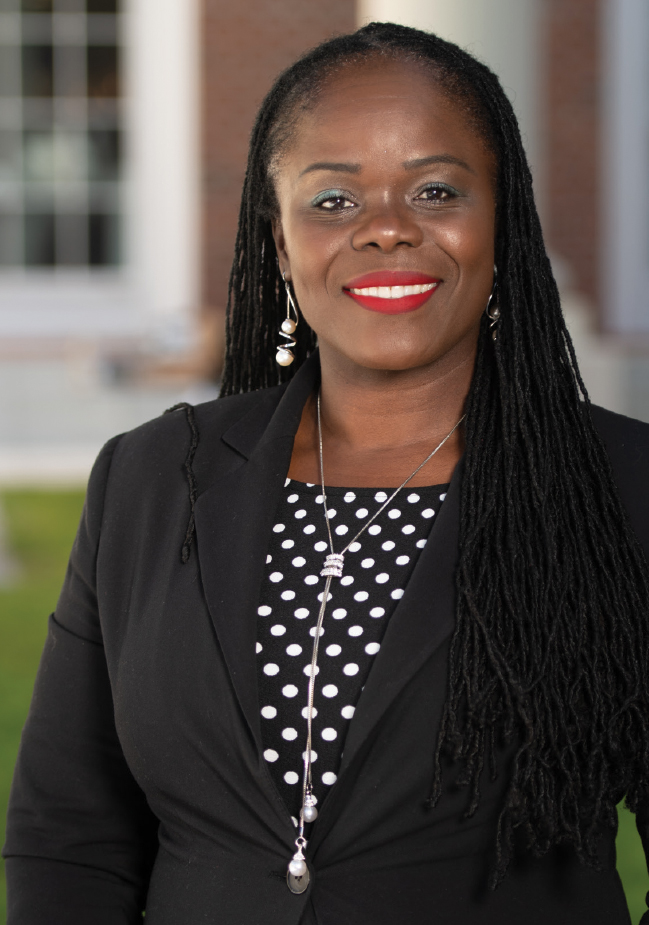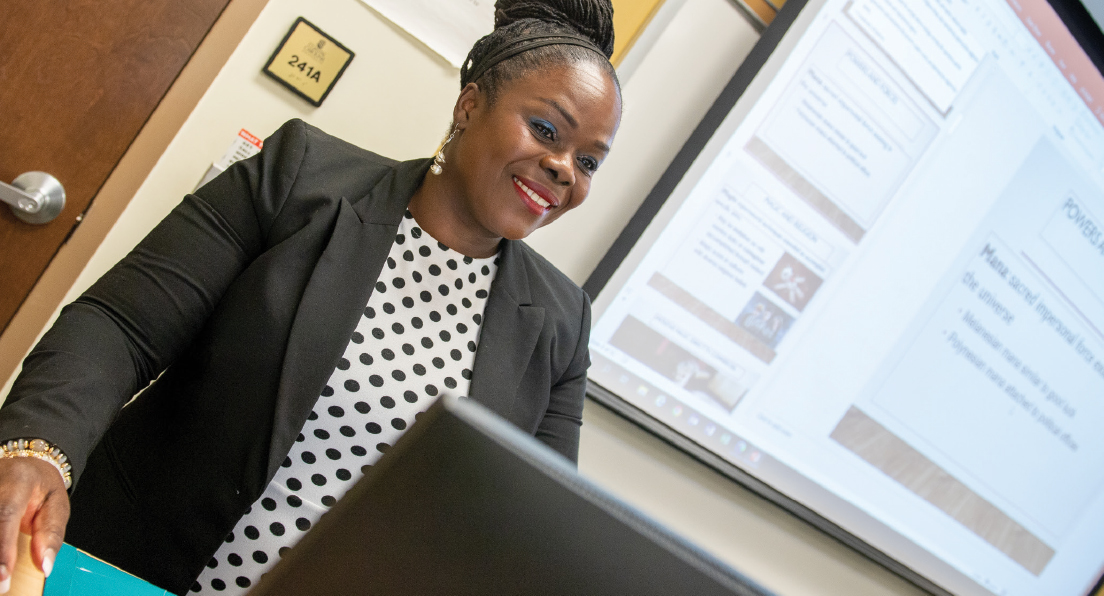Five Questions
Gillian Richards-Greaves, Ph.D.
Associate professor of anthropology

Gillian Richards-Greaves
What piqued your interest in anthropology?
“I have always been curious about cultural practices around the world and how people of the past lived. When I was very young, I used to dig into the rubbish heaps in my local community to find old, unique, or strange utensils from the past. Potshards, bottles, shoes, and a cannonball I later used as a shotput were some of the interesting items I unearthed. I also spent countless hours ‘gyaffing’ (chatting) with older people to hear the interesting stories of how they lived in the past. However, I was so focused on becoming an electrical engineer that I overlooked my seemingly innate passion for learning about other cultures. It was not until I entered grad school at Indiana University to pursue a Ph.D. in ethnomusicology (the study of music as culture, and in culture), that I realized how integral anthropology was to the previously mentioned discipline, and to my career in general. Thus, after completing my coursework in ethnomusicology, I embarked on a second Ph.D. in anthropology, completing both degrees concurrently.”
Why did you join the CCU faculty?
“I joined the CCU faculty because of the potential for personal and professional growth. I saw opportunities to teach innovative courses, help develop new programs or grow existing ones, and to engage in a wide range of enriching service activities. Since coming to CCU, I designed and proposed a total of 15 courses, 11 of which were entirely new courses. I also worked with my colleagues to create the Department of Anthropology and Geography, which was previously a program in the Department of History. Additionally, I helped to create the Charles Joyner Institute for Gullah and African Diaspora Studies and served as its first assistant director. While CCU is a relatively small university, it offers substantive support for faculty, especially for professional development.”
What do you most enjoy about the University?
“What I enjoy most about CCU are competent, supportive colleagues. Whenever I embark on a project, I never worry about my limitations because I am confident that I can draw on the wealth of expertise of collegial, hardworking peers to get the job done. Knowing this makes me feel invincible.”
You recently received a Fulbright IIE (Institute of International Education) grant to teach at Nnamdi Azikiwe University in Anambra State, Nigeria. What will that entail?
“During my Fulbright, I will teach interactive, experiential learning courses that investigate the complexities of ethnicity and race in Africa and its diasporas. I will also work with faculty at Nnamdi Azikiwe University on curriculum and program development, including the diversification of course offerings, the use of innovative technology in the classroom, virtual instruction, and distance learning. I also plan to offer training and support in the use of ethnographic research methods and to engage in faculty-student research projects and publications.”
Your research on the African Diaspora has expanded to include the Gullah Geechee community of South Carolina. What types of projects are you working on?
“In the past, I have worked on the development of the Joyner Institute. The goals of the institute are local (working with the Gullah Geechee community in the United States); academic (offering a minor in African and African diaspora studies); and international, supporting study abroad programs to the Caribbean, Africa, and other spaces where the African diaspora reside. I also assisted with student-led Athenaeum Press projects on Sandy Island.
“I’m working on a project in the Yawkey Fishing Village, under the auspices of archaeologist Jodi Barnes, Ph.D. She was hired by the S.C. Department of Natural Resources to work on a project to identify human remains that were discovered on the beach of South Island after Hurricane Irma in 2017. This collaborative project incorporates archaeology, oral history, archival research, and DNA analysis. I am conducting the ethnography and oral history portion of the project. The ultimate goal is to identify the descendants of the deceased and to give him a proper burial.
“I’m also part of a collaborative Igbo Landing project involving the Center for Igbo Studies (Dominican University) and several Gullah Geechee organizations. This project is in its seminal stage.”
About Richards-Greaves
Gillian Richards-Greaves is an anthropologist and ethnomusicologist whose research interests include the musical, cultural, linguistic, and ritual expressions of the African diaspora, particularly of the English-speaking Caribbean. She earned a Ph.D. in anthropology and ethnomusicology from Indiana University at Bloomington.



